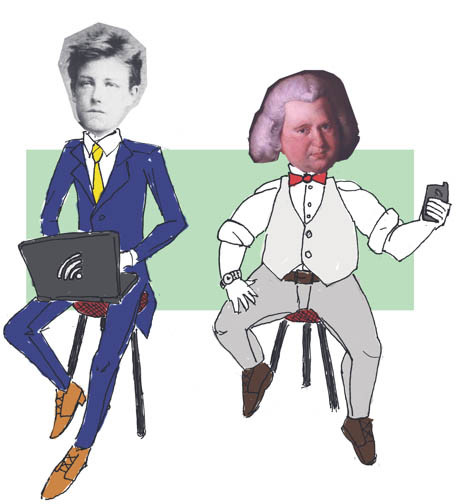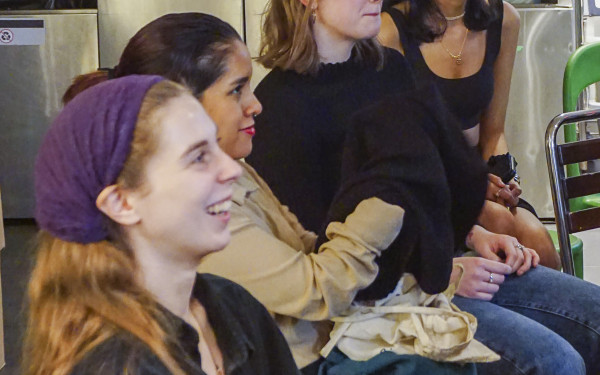Cyborg Poets
Wershler & Kennedy Give Historical Authors a Second Life in Update
Pssst! Want to know a secret? There’s a new Facebook going around—a cooler Facebook. There’s only one catch: you have to be a famous historical poet to get it.
That’s not quite the premise of Darren Wershler and Bill Kennedy’s poetry collection, Update, but it ends up being the result. You’d have to think yourself pretty lucky if the world’s most famous poets inhabited your Facebook friend list, and your newsfeed was built entirely of their thoughts. But you could be forgiven for feeling underwhelmed to find Sophocles discussing the fundamentals of rice dieting and British poet Erasmus Darwin wondering why he ever got cable.
This is the second time Darren Wershler and Bill Kennedy have collaboratively written a book in which poetry and the web interact, accentuating the tensions arising between culture and technology.
The question of media-immediacy has ignited a serious curiosity in both authors. Their backgrounds in English and Communications have led them to explore the often literarily-dubious terrain of social networks and their inevitable effects on writing and thinking.
On his website Alienated.net, for instance, Concordia Faculty Member Darren Wershler confesses that his blog is “the most visible part of [his] brain.”
In a world where instantaneous cyber-communication is a proxy for interaction, what does a status update constitute? Have our cyber lives collapsed onto our physical world?
The book is in some sense meant to render Facebook tangible. In an alphabetical order, a list of some of the world’s most famous poets appears along with their updates on the most prosaic aspects of their lives. They, too, wish they spent less time on the web and more time doing real life stuff. In the pages of Update, Bertolt Brecht “feels great accomplishment in futility”—and Arthur Rimbaud finds himself a victim of too much Shopgirls.com.
This is achieved simply—the Facebook statuses are those of real people, taken off the web with the aid of “harvesting bots, robots, spiders and/or scrapers.”
The book’s format makes it easy to scan through without following a specific order—the poets’ “updates” too are not meant to have a purpose; it is all about replicating the near-nonsensical nature of social networking.
Wittily compiled, Update will make you laugh, yet at the same time push you to question a generation’s engagement in trivial monologues. By attaching the name of famous intellectuals to banal exchanges, this book exposes the dynamics behind the daily construction of our web identities.
As the authors word it, this book is about “encouraging and facilitating the violation of poetry.”
Whether that’s something you’re into is up to you—but either way, it will make you laugh.
This article originally appeared in Volume 31, Issue 23, published February 15, 2011.





_600_375_s_c1.png)

